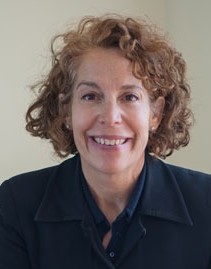We’re living in exceptional times in communications. Look no further than the metamorphosis driven by technology and business needs, shrinking attention spans and the speed at which a negative comment on social media can upend any hard-won reputation. Exceptional times demand exceptional communications practitioners.
Rajeev Chawla, Chief Learning & Operations Officer, Blue Tree and Course Head, Public Relations & Corporate Communications at Xavier Institute of Communications in Mumbai, (where I am a guest lecturer also), confirms, “Absolutely. It’s not enough to be above average.”
What else isn’t enough? Plenty, according to Rajeev.
For example, knowing your own brand and company area inside out should only be the start.
“Yes, you must know your market, your customers and stakeholders, and your competitors,” he said. But there is much more to learn from other industries, the news, company behavior and executive experience. You need to watch marketing trends, learn the insights other experts derive, and what Gen Z is thinking, needing, preferring, and doing.”
Communicators aren’t doing enough listening either: “The balance should be 10% speaking; 90% listening.”
How to stay ahead
Being exceptional will help communicators stay ahead of what’s coming, says Rajeev, who in general feels very positive about the state of business in India (“great!”), the economy (“among the few in the world that’s OK today”) and the speed at which positive change is (“fast but could be faster”). As for corporate reputation, ‘all eyes are on that now.”
How to stay ahead? There are many ways. My own routine to keep my skills sharp for supporting pharma, biotech and consumer health clients includes being an early adopter of new technologies, stretching my utility and facility with AI tools every day. I also follow traditional media, newsletters, blogs, industry outlets and podcasts–as much for the information as for the vocabulary, tone, and style that resonate with different audiences. Inspiration comes from the Harvard Business Review, and I seek out the speeches and employee communications of CEOs and other executives I admire. Commencement addresses are a particular favorite source—see this one, here, and here. There are many more. Finally, as founding faculty and workshop speaker in university marketing and public relations programs, I learn as much as my students do.
Role of trust and CSR
Trust and corporate social responsibility, longtime stalwarts of reputation, are in the spotlight. Exceptional attention needs to be paid. It’s not enough to pay lip service here or simply follow government mandates for companies above a certain profit threshold to spend at least 2% of average net profits of three years on CSR-related activities.
Rajeev put it this way, “Companies are getting and exhibiting their souls now.”
Communicators play a significant role in driving their company’s CSR as part of building, sustaining, and amplifying a positive reputation. I shared with Rajeev my take on amplifying some, if not most company CSR activities – that the best PR is getting ‘caught in the act of doing something good.’ Essentially, when others – employees, customers, stakeholders’ see or learn first-hand, share on their own, and take pride in company’s activities and behaviors and how company leaders conduct themselves or handle crises. Positive media coverage follows when CSR is an attractive story rather than when it is promoted.
An example of this that has stood out for Rajeev for 16 years now, is Tata’s response to the terrorist attack of 2008 in Mumbai, and how the company rebuilt and provided relief. Then and now, he says, Tata is ‘rock solid’ on trust. What communications leaders can take from this example, Rajeev says, is to build CSR “from the heart.”
Large companies have long understood how trust, actions, and communications work together to build reputation, though this doesn’t always show and often there is room for improvement – more investment in communications, fewer silos, more integrated disciplines. Smaller and mid-sized companies in India are getting there now, too, he says.
We agreed the fundamental building blocks – empathy, transparency, authenticity — haven’t changed much, but how they are manifested and expressed is ever-evolving as is the need for preparation, listening, vision and a rapid response when necessary.
And for this, communicators leading reputation work and advising the C-suite need to be exceptional. Doing exceptional work. Changing the world in exceptional ways.
The views and opinions published here belong to the author and do not necessarily reflect the views and opinions of the publisher.



Be the first to comment on "On being exceptional"